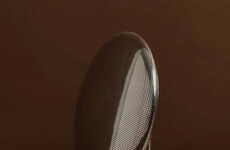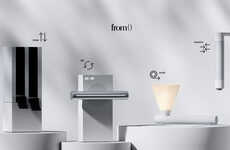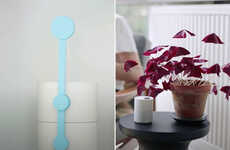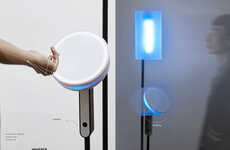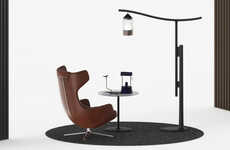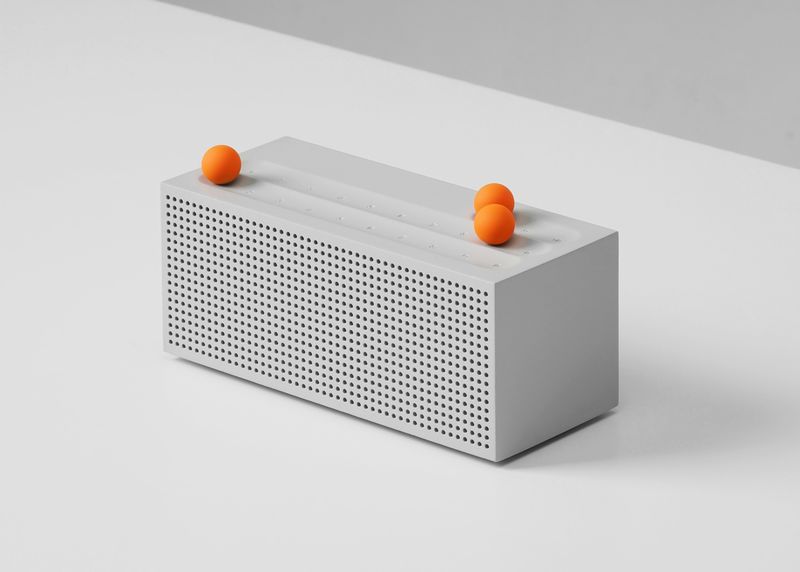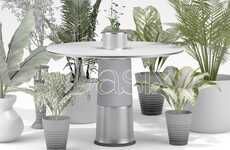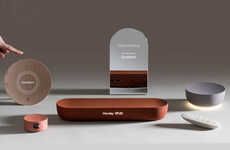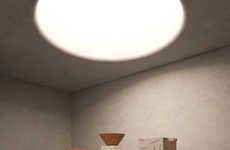SF-SO's Project Illuminates the Core Functions of Tech Gadgets
Kalina N — January 29, 2020 — Art & Design
SF-SO — and industrial design duo, has launched a very interesting concept that goes by the name 'The Tamed Digital Product Project.' The venture brings four tech-forward products to the attention of the audience and instead of building on their functionality, SF-SO simplifies them by reducing them to their core function.
The Bluetooth speaker, the smart door lock, and the two different radios are essentially screenless and analog. They boast only one function, the one that they were meant to satisfy upon conception. The pieces in SF-SO's 'Tamed Digital Product Project' rely on sensors for their usability. In addition, the industrial design studio added subtle pops of color to better guide consumers through the processes of UX and UI.
Image Credit: Dezeen
The Bluetooth speaker, the smart door lock, and the two different radios are essentially screenless and analog. They boast only one function, the one that they were meant to satisfy upon conception. The pieces in SF-SO's 'Tamed Digital Product Project' rely on sensors for their usability. In addition, the industrial design studio added subtle pops of color to better guide consumers through the processes of UX and UI.
Image Credit: Dezeen
Trend Themes
1. Sensory-dependent Analog Products - Reduction of complex product's core functionality is the key to simplicity and usability.
2. Screenless Interfaces - Creating intuitive experiences that rely on sensors promotes UX and UI usability.
3. Minimalist Design - Incorporating minimal design elements into products can simplify their core functions and promote usability.
Industry Implications
1. Smart Home Industry - Simplifying smart tech by reducing it to its core function and creating screenless interfaces could lead to disruptive innovation opportunities in the smart home industry.
2. Audio Tech Industry - The trend of sensory-dependent analog products could lead to new opportunities for innovation in the audio tech industry by prioritizing function and usability over unnecessary features.
3. Industrial Design Industry - Incorporating minimalist design elements into digital products and relying on sensors for usability could lead to disruptive innovation opportunities in the industrial design industry.
4.8
Score
Popularity
Activity
Freshness
